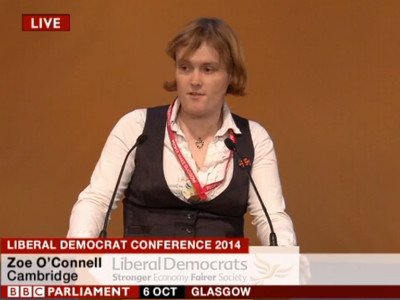News emerged yesterday* that the Gender Recognition Panel (GRP) is delaying and possibly denying legal gender recognition because a trans person has had children whilst living in their new gender – an act which is completely unjustified, given that the Gender Recognition Act does not require someone who has transitioned to refrain from sex that may get them or their partner pregnant.
At best, this delay is of questionable legality and reveals a dangerous element of (hopefully inadvertent) transphobia in the decision making process of the panel, likely fueled by ill-informed and sensationalist media coverage.
But at worst, the panel are willfully intruding into the area of reproductive justice. Coercive sterilisation of trans people has long been a major concern, but one that was until yesterday limited to countries other than the UK. Questioning the commitment of any trans person who has the audacity to exercise their reproductive rights is simply an attempt to force de-facto sterilisation via the back door, something considered a human rights abuse by the Council of Europe.
What is also of concern is that the panel based the decision to request more information on the publication of a newspaper article. This has the effect of penalising those who engage with the media as part of a campaign for equality. It will also hinder people who, as is often the case with members of the trans community, have been outed without their consent and have had deliberately misleading or inaccurate information about them distributed in order to sensationalise a story.
In an older case, the panel delayed an application because a doctor correctly decided that the information that a trans person had a wife and children was of no relevance and did not include it in their report. Another doctor did mention it, and thus the panel decided it should investigate further to ensure the first doctor was giving his opinion “in light of the correct factual situation”.
It is entirely possible that the Gender Recognition Panel does not realise the gross errors it is making, as having any experience of trans matters is not a requirement to sit on the panel. According to the Gender Recognition Act, “the only persons who may be appointed to the [panel] are persons who have a relevant legal qualification (“legal membersâ€), or are registered medical practitioners or registered psychologists“. There is no further requirement given, beyond specifying exactly what legal qualifications legal members needs.
That means that being a doctor or lawyer in any field whatsoever is a more necessary qualification for determining someone’s gender than having any first hand experience of the topic whatsoever.
PS. If you have had a similar experience with the Gender Recognition Panel delaying an application because you have had a child, UK Trans Info would like to hear from you – email info@uktrans.info.
The original tweet, although anonymous and not made by the original applicant, was removed the following day as the person to whom this happened is worried that publicity may affect their GRC application



